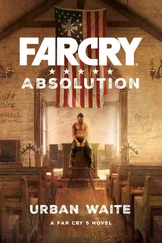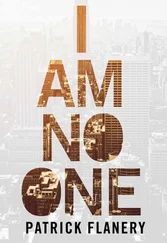We arrive at the drab glass and metal building that houses the studio. A girl who always mispronounces my name greets us warmly at reception and escorts us upstairs. In the dream I sit down at a desk in the studio, and the production team smiles at me through the glass window of the control booth. They are waving … waving fondly I think, fondly because there you are, Laura, one of them. Not just one of them, but the boss, the head of the team, the one calling the shots . You lean towards your microphone and tell me just to let them know when I’m ready and they’ll begin recording. You show no sign of recognizing me as anyone other than the writer in your studio, the semi-celebrity who can walk down nearly any street in this country without being recognized, who is only noticed on the campuses of a few universities, and even there by a mere handful of students and professors. Abroad is a different matter. In the dream you appear unaware of — or wish to conceal — our kinship, and I sit there bewildered. Why should you be so pleasant but so distant? Is it a matter of not knowing? Are you not the daughter you appear to be, but her doppelgänger? Or are you ashamed of me, wishing for your colleagues not to know that you are the child of the monster who sits before them to read into a microphone, all the voices of her mind merging into a single furious shriek, for there is so much anger in the pages of this book (both the real and the dreamed, though they are different texts, telling different stories, equal in their rage) that in the dream (as well as in the real recording sessions this week) I have memories of previous sessions (dream memories of the real recording sessions, I presume) in which I have come to the point of shouting, screaming, breaking down in tears. My urbane New York editor will be unhappy with this. In his fey voice he asked for tension and suspense in my oral delivery, but controlled, modulated, made safe for the ears and feelings of my auditory readers. In the dream I look down at the transcript of the book, open the cover, and find nothing but blank pages. Go ahead , you say to me, coaxing, smiling, Go ahead, whenever you’re ready, just speak clearly into the microphone . But there are no words on the page, I protest, holding up the transcript. There is nothing here to read, and I cannot remember it, I don’t remember the words, it doesn’t work like that, a memoir, even a fictionalized one, is a work of memory on the page; the individual words might lodge in my brain, but I cannot summon the text complete in my head. The text I have written does not reside within. You smile at me, looking patient, rather indulgent, and nod your head. Take your time , you say, there’s no rush, we have the studio for the whole day, and you should just let us know when you’re ready to begin . I page through the script, thinking perhaps I missed the text, that it will be there if I look again, but it remains obstinately blank. I cannot read from a blank book, I say. I cannot pretend there are words here when there aren’t, you must bring me the text that I used yesterday and the day before. I don’t have time for games, for these kinds of April Fool’s jokes. I am an old woman with feelings, and this is a serious business, the reading of one’s life. Suddenly you look cross, push back your chair, and stomp into the studio. You stand over me, pointing your finger, your face twitching as it used to when you were consumed with your own anger, but magnified a hundredfold, blocking out the rest of the room. Leaning over, you hiss at me, You will read now, old woman, and you will read until you are done . (Not until you have finished , but until you are done , dead, kaput.) We don’t have all day , you whisper between clenched teeth. This is a very expensive studio to hire and you’re wasting our time and money . On your body I catch the scent of wildness, of rage. I begin to tremble, and it is invariably at this point that I wake up, covered in sweat.
Waking from this dream and its multiple iterations over the course of the week, I have turned each time to your notebooks or journals, I know not what to call them any more, because they are as much plans and appointments and random thoughts, all apparently giving nothing away that would be of use to anyone but me, the person in the position of the grieving parent, as they are a record of your life before you disappeared. (Am I not the grieving parent? I grieve and I was your parent, but I cannot fit my own position and my feelings with the image I have when the phrase grieving parent is pronounced: the sobbing woman with white hair, in a babushka, holding a broken body in her arms. I have not sobbed, there has never been a body to hold, the babushka my mind has borrowed from photos of disaster zones, wars, and battlegrounds. I could never be that woman I see, searching for her unburied dead.)
Every Saturday, I speak to your father on the phone. We ask each other, Have you heard from her? We’ve been asking this for two decades. I tell him about the dreams I have been having of you, their vividness, my belief that they signal your continuation, and your rage — rage directed at me specifically. It is something we both feel. We are both responsible. Your father is convinced he failed to support you adequately in your beliefs — beliefs that, at the very least, we both shared, even if we drew the line at some of your activities. You talk to us, relentless, haranguing, banging around in our brains, beseeching. We cannot put you to rest.
*
You and Sam sat apart on one side of the fire, with the lion and jackal, Lionel and Timothy, on the other. There should have been obvious questions from each party for the other — questions you would have asked them, questions they must have had for you. Why were two young students — for that is what they said they were, at least that is how you describe them in your notebooks — camping alone in the mountains? Why was a lone woman with a small child driving a truck through a hazardous, untarred mountain pass after dark? The two parties looked at each other across the campfire. Did you trust them intuitively, as the boy trusted you? Your notebook is silent about this. You had locked the cab of the truck, the keys were safe in your pocket, so there was no worry about the men stealing the vehicle, though perhaps you allowed yourself to imagine the worst in order to be prepared, to see yourself being forced to the ground, the keys stripped from your body, the way you would fight, how you would claw at their faces, call on Sam to attack them, to bite at their legs as the dog had bitten at yours. But these men had innocent, children’s faces. You brought out your Safari Dates, and the men offered to share their dinner. Sam nibbled a hot piece of bread and drank water, but had no appetite for anything more substantial. He laid his head against your side and you put an arm around him.
‘Lionel and I were wondering if we could ask you for a ride, if you’ve got room in the truck?’ Timothy said. ‘I know it’s presumptuous, and we’re strangers, and two men, and you’re a woman, but, at the risk of being inappropriate, I can assure you that you’d have nothing to fear from us. Nothing to fear, I mean, in the way that women so often have cause to fear men.’
‘Are you priests?’
‘No, not priests,’ Timothy laughed. ‘Though even if we were, would that really reassure you?’ This made him laugh even harder.
‘No,’ you agreed, trying to make yourself look relaxed and unafraid. ‘Where are you going?’
‘The Nuweveld. Outside Beaufort West.’
‘I’m going that way. Sam’s aunt lives in Beaufort West.’
‘Your sister?’
‘No.’ Through the fire and smoke you thought you saw Timothy raise a sceptical eyebrow. ‘What’s in the Nuweveld?’
Читать дальше












